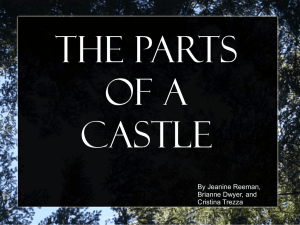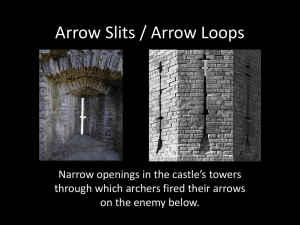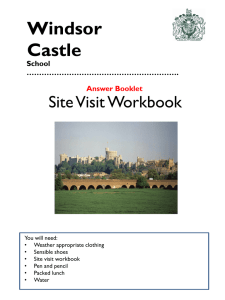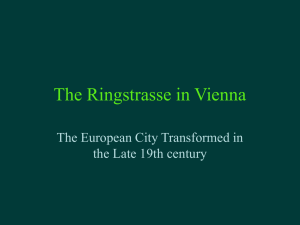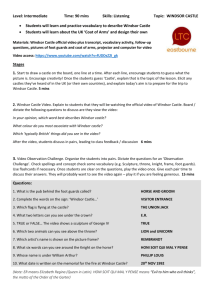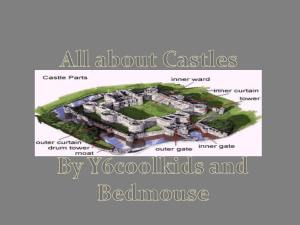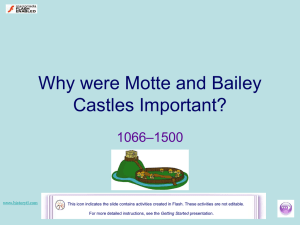Site Visit Workbook
advertisement
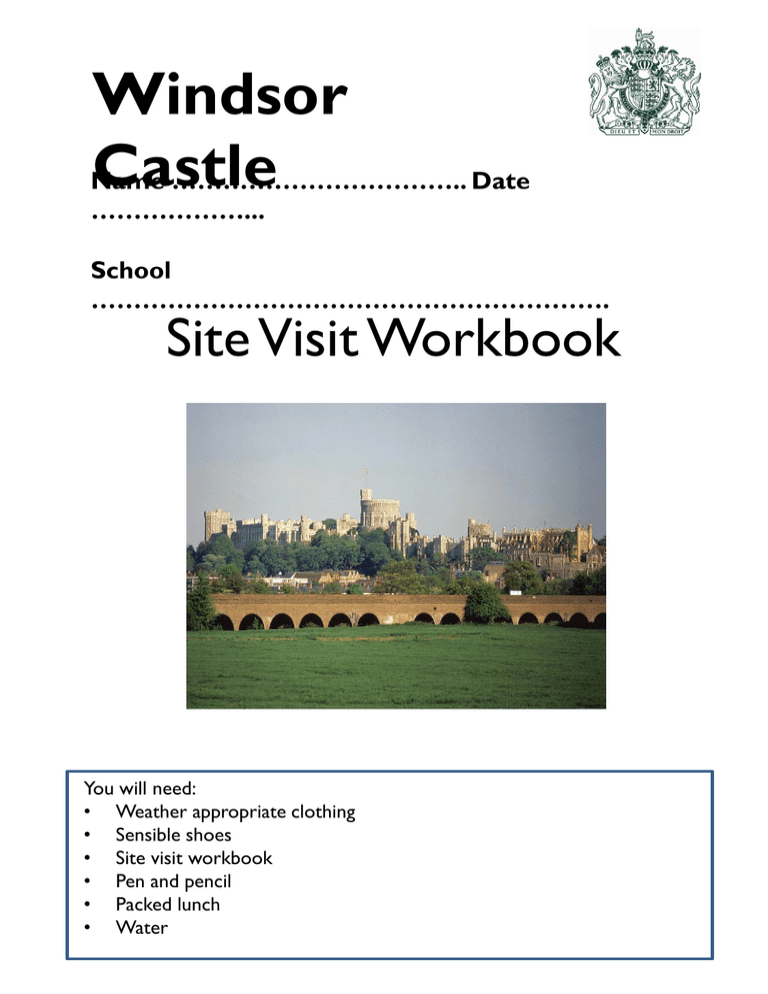
Windsor Castle Name …………………………….. Date ………………... School ……………………………………………………. Site Visit Workbook You will need: • Weather appropriate clothing • Sensible shoes • Site visit workbook • Pen and pencil • Packed lunch • Water Security at Windsor Castle Windsor Castle is a working royal palace • On arrival, you and your belongings will be subject to airport-style security checks. Please try to bring as little as possible with you as it will help you to get through security screening more quickly. • Eating and drinking are not permitted in the State Apartments or St George’s Chapel. You will be asked to place drinks and food in closed bags before being admitted to the Castle. • Photography and filming are not permitted inside the State Apartments, the Semi-State Rooms or St George's Chapel. • Large backpacks are not permitted in the State Apartments and must be checked in. What do you know about Windsor Castle and its use today? Windsor Castle was built in about 1080, for William the Conqueror. Why did William build castles to live in? William chose Windsor as a site for his Castle for 3 main reasons. For each reason given below, explain why this was important: • On a hill: • Near a Forest: • Next to a River: William’s Castle was built as an earth and timber fortress, and was part of a ring of castles around London, each 20 miles from each other. Why did William build a castle of wood? Why do you think the castles were placed 20 miles apart? Hertford Tower of London Rayleigh Berkhamsted Ongar Rochester Tonbridge Windsor Guildford Reigate Motte and Bailey. Bailey Motte The Motte is the mound in the middle, with the Keep on the top. The Bailey is the area to the side of the Motte. Discuss why you think there are 2 Baileys at Windsor. This picture shows the Castle rebuilt in stone in the 1170s. Why is stone better than a wooden fortress? Can you guess why the moat at Windsor Castle had no water in it? (Clue: the answer is to do with geography and soil structure). Windsor Castle has thick stone walls, in some places up to 4 metres thick. Look at these pictures of the towers situated along the outside wall. Why do you think they are wider at their base? The tower in the first picture (above) is the original shape, however some of these towers where later given a curved outer edge. Why do you think that happened? If you asked a small child to draw a picture of a castle, it is likely they would use this shape at the top of the walls. Can you think of any words we associate with this part of the Castle? Find some Arrow Slits (or Arrow Loops). • Why is the opening so narrow? • Why is it the shape of a cross? • Why the need for a recess (hollowed-out space) in the inside wall? • Why was the enemy attacking the Castle at such a disadvantage? Look closely at the stone walls. Why do you think flint was placed between the stone blocks (galetting)? Stone Gateways and keeping the enemy out. • You will see lots of stone gateways around the Castle. Name some defensive features you can find in and around them. • Look up when you are passing through a gateway. What can you see? • What kind of defensive doorway would you once have seen at Henry VIII gate? Siege – the Castle under attack. On two occasions during its 900 year history, Windsor Castle has been attacked. In 1216 local Barons attacked many castles, including Windsor. Why do you think this happened? Draw an arrow to link the label with the picture of the siege weapon below: Pontoon Bridge Ballista Siege tower Scaling ladder Catapult or Mangonel Battering ram An attacking army had other methods at its disposal. Have a look at these and comment on what they are or how they might be achieved. Deception Treachery Starvation Biological warfare Mining Simple storm Further developments in warfare. Gunpowder was introduced in 1346 (its use was recorded at the Battle of Crecy), 100 years before the Wars of the Roses. • What evidence can you find that cannons were ever needed for use at Windsor Castle? • Consider how the introduction of gunpowder and cannons may have changed the way a battle was fought, and therefore how a Castle was defended. St. George’s Chapel. Poised on the roof are some figures. What do you think they are for? What can you find out about the flags in the Chapel and the group of people they represent? Why do you think there is a church within the Castle walls? Use these pages to make some sketches and notes of things or features of the Castle to remind you for follow up at school. Created by Royal Collection Trust, Learning with thanks for contributions from Baylis Court School. Find out more at www.royalcollection.org.uk/learning Learn more about St George’s Chapel at www.stgeorgeswindsor.org October 2014

